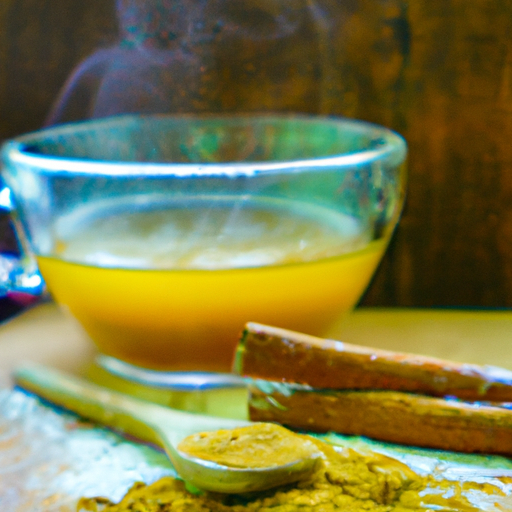As someone who has experienced vertigo, I understand how debilitating and frustrating it can be. Vertigo is a condition that causes dizziness, disorientation, and a sensation of spinning or tilting. It can be caused by a range of factors, including inner ear problems, head injuries, and even certain medications.
If you are experiencing vertigo, you may be wondering what cures are available to alleviate your symptoms quickly. Fortunately, there are a variety of treatment options available, including vestibular rehabilitation exercises, home remedies, medications, surgery, chiropractic care, cognitive behavioral therapy, and prevention techniques.
In this article, we will explore each of these options in detail, providing you with the information you need to make an informed decision about which approach is right for you.
Key Takeaways
- Vestibular rehabilitation exercises and home remedies can be effective in treating vertigo.
- Endolymphatic Sac Decompression and Vestibular Nerve Section are surgical options for severe cases, but carry risks.
- Acupuncture and chiropractic care can also be used to treat vertigo.
- Maintaining a healthy lifestyle, incorporating balance exercises, and seeking professional help are important for preventing and treating vertigo.
Understanding Vertigo
Do you often feel like the world is spinning around you and it’s hard to maintain balance? That’s vertigo, and it can be a scary experience.
Vertigo is a condition that affects the inner ear, which is responsible for maintaining balance and spatial orientation. This condition can be caused by a variety of factors, such as head injury, ear infections, or even certain medications.
Symptoms of vertigo include dizziness, nausea, vomiting, and difficulty walking or standing without feeling unsteady. These symptoms can be mild or severe, and can last for a few seconds or several hours.
If you experience any of these symptoms, it’s important to seek medical attention to determine the underlying cause of your vertigo. With proper diagnosis, you can find the right treatment to help you manage this condition.
One of the most effective treatments for vertigo is vestibular rehabilitation exercises, which can help to improve balance and reduce symptoms.
Vestibular Rehabilitation Exercises
You can strengthen your inner ear and improve your balance by practicing these simple exercises. Vestibular rehabilitation exercises, also known as balance training, are commonly prescribed by healthcare providers to help individuals manage their vertigo symptoms. These exercises are designed to help your brain adapt to changes in your inner ear, which can improve your balance and reduce the frequency and intensity of vertigo attacks.
One type of vestibular rehabilitation exercise involves head positioning techniques. This exercise involves moving your head in different positions to help your brain adapt to changes in your inner ear. For example, you may be asked to turn your head to the left or right, or to tilt your head forward or backward. Your healthcare provider may also instruct you to hold your head in a certain position for a period of time to help your brain adjust to changes in your inner ear. By practicing these exercises regularly, you can improve your balance and reduce your vertigo symptoms.
| Exercise | Description | Benefits |
|---|---|---|
| Eye tracking | Move your eyes back and forth or up and down while keeping your head still | Improves eye muscle function |
| Standing balance | Stand with your feet together and arms at your sides for 30 seconds | Improves overall balance |
| Gaze stabilization | Focus on a stationary object while moving your head side to side or up and down | Improves visual stability during head movements |
Incorporating these exercises into your daily routine can help you manage your vertigo symptoms and improve your overall quality of life. However, if you continue to experience vertigo despite practicing these exercises, it is important to consult with your healthcare provider for further treatment options. In the next section, we will discuss some home remedies that may also help alleviate vertigo symptoms.
Home Remedies
To naturally relieve vertigo symptoms, try incorporating these home remedies into your daily routine. Natural remedies can be helpful for those seeking relief from vertigo without taking medication.
Here are four lifestyle changes you can make to help alleviate your symptoms:
-
Stay hydrated: Dehydration can cause dizziness and exacerbate vertigo symptoms. Be sure to drink plenty of water throughout the day.
-
Limit caffeine and alcohol: Both caffeine and alcohol can trigger vertigo symptoms, so it’s best to limit your intake or avoid them altogether.
-
Get plenty of rest: Lack of sleep can cause dizziness and worsen vertigo symptoms. Make sure you’re getting enough rest each night.
-
Practice stress-reducing techniques: Stress can trigger vertigo symptoms, so it’s important to practice relaxation techniques such as yoga, meditation, or deep breathing exercises.
While these home remedies can be helpful in managing vertigo symptoms, it’s important to consult with your doctor if your symptoms persist or worsen. In the next section, we’ll discuss medications that can be prescribed to alleviate vertigo symptoms.
Medications
If you’re feeling like you’re constantly spinning on a never-ending rollercoaster, there are medications that can act as a safety harness, helping to steady your balance and ease the vertigo symptoms.
Potential medication options include antihistamines, such as meclizine and diphenhydramine, which can help reduce dizziness and nausea. Benzodiazepines, like diazepam and lorazepam, can also be prescribed to calm the nervous system and reduce the frequency and severity of vertigo episodes.
It’s important to keep in mind that all medications come with potential side effects, and these can vary depending on the type of medication and the individual taking it. Common side effects of antihistamines include drowsiness, dry mouth, and blurred vision. Benzodiazepines can cause dizziness, confusion, and memory problems.
If you’re considering medication as a treatment option for your vertigo, it’s important to discuss the potential benefits and risks with your healthcare provider to determine the best course of action.
As effective as medication can be, it’s not always the answer. In some cases, surgery may be necessary to correct underlying issues causing vertigo symptoms.
Surgery
Surgery is an option for those who suffer from vertigo that isn’t responding to medication or other treatments.
There are several types of surgeries that can be performed, including Endolymphatic Sac Decompression, Vestibular Nerve Section, and Labyrinthectomy.
These surgeries involve altering or removing parts of the inner ear to alleviate the symptoms of vertigo.
Endolymphatic Sac Decompression
You can quickly find relief from vertigo through endolymphatic sac decompression, a surgical procedure that aims to improve the flow of fluid in the inner ear. This procedure involves making a small incision behind the ear and removing a portion of the bone that covers the endolymphatic sac. By doing so, excess fluid can drain out of the inner ear, reducing the pressure and restoring balance.
While endolymphatic sac decompression is generally considered safe, there are possible risks associated with this procedure, such as hearing loss, infection, and damage to the facial nerve. However, the success rate of this procedure is relatively high, with up to 80% of patients experiencing a significant improvement in their vertigo symptoms.
If you’re considering endolymphatic sac decompression, it’s important to discuss the potential benefits and risks with your doctor to determine if this procedure is right for you.
Transitioning into the subsequent section about vestibular nerve section, it’s worth noting that this procedure involves cutting the vestibular nerve to eliminate vertigo symptoms. While it’s effective, this procedure is more invasive and carries a higher risk of complications.
As such, endolymphatic sac decompression is often recommended as a first-line treatment for vertigo, with vestibular nerve section reserved for cases where other treatments have failed.
Vestibular Nerve Section
After considering the possible benefits and risks of endolymphatic sac decompression, another surgical option for treating vestibular disorders is vestibular nerve section. This procedure involves cutting the vestibular nerve, which is responsible for transmitting information about balance and spatial orientation from the inner ear to the brain.
By severing this nerve, the brain no longer receives signals from the affected ear and can compensate for the loss of balance function. Vestibular nerve section is typically reserved for patients who have severe, intractable vertigo that cannot be managed with other treatments.
It’s also important to note that this procedure carries the risk of hearing loss, as the vestibular nerve is closely intertwined with the auditory nerve. Therefore, careful consideration and evaluation of the patient’s medical history and condition is necessary before proceeding with this surgery.
Moving forward, another surgical approach for treating vestibular disorders is labyrinthectomy. This procedure involves removing the entire labyrinth, which includes the vestibular system.
Labyrinthectomy
As you delve deeper into the treatment options for vestibular disorders, a labyrinthectomy may be likened to removing a key component from a complex machine, as it involves the extraction of the entire vestibular system. This procedure is typically reserved for patients who have severe vertigo that hasn’t responded to other treatments, as it permanently eliminates the patient’s ability to sense balance.
Here are some risks and benefits, as well as post-operative care instructions, associated with a labyrinthectomy:
-
Benefit: Complete elimination of vertigo symptoms
-
Risk: Permanent hearing loss
-
Post-operative care: Avoid any activity that involves sudden movements or jarring motions, as this could damage the healing surgical site.
-
Risk: Possible complications such as infection, bleeding, or spinal fluid leakage
After undergoing a labyrinthectomy, patients will need to follow strict post-operative care instructions to ensure proper healing and minimize the risk of complications. These instructions typically include avoiding any activities that could cause jarring or sudden movements, as well as taking medications as prescribed. Acupuncture may be a potential treatment option for patients who’re seeking a non-invasive approach to vertigo relief.
Acupuncture
If you’re looking for a quick fix for vertigo, acupuncture might be worth considering. It’s a traditional Chinese medicine technique that involves the use of thin needles being inserted into specific points on the body to stimulate the flow of energy or Qi.
Acupuncture benefits include its non-invasiveness, lack of side effects, and its effectiveness in reducing symptoms of vertigo. However, like any medical procedure, it also carries some risks such as infection, bruising, and dizziness. It’s important to consult with a licensed acupuncturist and discuss any medical conditions or medications you may be taking before undergoing acupuncture treatment.
Transitioning into the subsequent section about ‘chiropractic care’, it’s important to note that like acupuncture, chiropractic care also involves non-invasive techniques to relieve vertigo symptoms.
Chiropractic Care
Chiropractic care provides a natural and holistic approach to treating the underlying causes of vertigo, helping patients achieve long-term relief from symptoms. The benefits of chiropractic care for vertigo include correcting misalignments in the spine and improving blood flow to the inner ear, which can alleviate the dizziness, nausea, and balance problems that come with vertigo. Chiropractors may also use techniques such as spinal adjustments, massage, and stretching to help restore proper nerve function and reduce inflammation in the body.
When seeking chiropractic care for vertigo, it’s important to find the right chiropractor for vertigo treatment. Look for a chiropractor who has experience treating vertigo specifically, and who uses a variety of techniques to help address the root causes of vertigo. Additionally, be sure to communicate any concerns or questions you have with your chiropractor, as they can help guide you through the treatment process and ensure that you’re receiving the best possible care.
With the right chiropractic care, patients can experience significant improvements in their vertigo symptoms and overall quality of life. Transitioning into the subsequent section about cognitive behavioral therapy, it’s important to note that this type of therapy can also be an effective treatment option for vertigo, as it can help patients manage the emotional and psychological effects of this condition.
Cognitive Behavioral Therapy
To effectively manage the emotional and psychological effects of your vertigo, cognitive behavioral therapy can be a valuable treatment option.
Cognitive behavioral therapy is a type of psychotherapy that aims to change negative thought patterns and behaviors that contribute to anxiety and other mental health conditions. By identifying and challenging negative thoughts and beliefs, individuals can learn healthier coping mechanisms and improve their overall well-being.
Benefits of cognitive behavioral therapy include improved self-esteem, reduced anxiety and depression symptoms, and increased ability to manage stress. The process of cognitive behavioral therapy typically involves several sessions with a licensed therapist, who will work with you to identify specific triggers and negative thought patterns.
Through techniques such as exposure therapy and cognitive restructuring, individuals can learn to manage the symptoms of vertigo and improve their quality of life.
To prevent future episodes of vertigo, there are several techniques that can be helpful.
Prevention Techniques
One effective way to prevent future episodes of vertigo is by incorporating balance exercises into your daily routine. These exercises can help improve your balance and coordination, which can reduce the risk of experiencing dizziness or vertigo. Some simple balance exercises include standing on one foot, walking heel-to-toe, and standing on a balance board.
In addition to balance exercises, maintaining a healthy lifestyle and making dietary changes can also help prevent vertigo. Eating a well-balanced diet that’s low in salt and high in fruits and vegetables can help reduce fluid buildup in the inner ear, which is a common cause of vertigo. Staying hydrated and avoiding caffeine and alcohol can also help prevent dizziness and balance issues.
By incorporating these preventative measures into your daily routine, you can reduce the likelihood of experiencing vertigo in the future and improve your overall quality of life.
To seek professional help for vertigo, it’s important to consult with a healthcare provider who specializes in treating balance disorders. They can perform diagnostic tests to determine the cause of your vertigo and provide you with treatment options to help manage your symptoms.
Seeking Professional Help
If you’re feeling like you’re lost at sea with no anchor, it may be time to seek the guidance of a healthcare provider who specializes in treating balance disorders. Vertigo can be a debilitating condition that affects your quality of life, but fortunately, there are ways to manage and even cure it.
Here are some benefits of seeking professional help and tips for choosing a healthcare provider:
- A healthcare provider can diagnose the underlying cause of your vertigo and recommend the appropriate treatment plan.
- Therapy can help you learn how to manage your symptoms and improve your balance.
- A healthcare provider can monitor your progress and adjust your treatment plan as needed.
When choosing a healthcare provider, look for someone who has experience treating balance disorders and is familiar with the latest research and treatment options. You may want to ask for recommendations from your primary care provider or do your own research online.
It’s important to find someone you feel comfortable working with and who can provide the support you need to manage your vertigo. With the right healthcare provider and treatment plan, you can get back to feeling like yourself again.
Frequently Asked Questions
Can vertigo be caused by stress or anxiety?
Yes, stress and anxiety can cause vertigo. Stress management and relaxation techniques, as well as therapies like cognitive behavioral therapy, can help alleviate symptoms. It’s important to address underlying stressors to prevent future occurrences.
Is there a specific diet that can help alleviate vertigo symptoms?
Hydration is key to managing vertigo symptoms. Avoiding trigger foods such as caffeine and alcohol can also help. A balanced diet including whole grains, fruits, and vegetables is recommended.
Can certain medications or supplements worsen vertigo symptoms?
Vestibular suppressants and motion sickness medications can worsen vertigo symptoms. These medications work by suppressing the vestibular system, which can exacerbate vertigo. It is important to consult with a healthcare provider before taking any medication or supplement for vertigo.
How long does vertigo typically last?
On average, vertigo lasts for a few seconds to a few minutes. However, severe cases can last for hours or even days. Treatment options include medication, vestibular rehabilitation, and maneuver therapy. It’s important to consult a healthcare professional for proper diagnosis and treatment.
Can vertigo be a symptom of a more serious underlying condition?
Vertigo can be a symptom of underlying causes such as Meniere’s disease, vestibular migraines, or even a stroke. Medical treatment, including medication and physical therapy, can help manage vertigo and address any underlying conditions.
Conclusion
In conclusion, as someone who’s personally experienced the debilitating effects of vertigo, I understand the urgency in finding fast and effective cures.
Whether it’s through vestibular rehabilitation exercises, home remedies, medications, surgery, chiropractic care, cognitive behavioral therapy, or prevention techniques, there are options available to alleviate symptoms.
It’s important to consult with a healthcare professional to determine the best course of action for each individual case.
In addition, incorporating parallelism into writing can make it more engaging and memorable for the audience.
By utilizing similar sentence structures and repeating key words or phrases, the information becomes easier to comprehend and retain.
So, when seeking out cures for vertigo, remember to explore all options and work with a professional to find the best solution for your unique situation.










